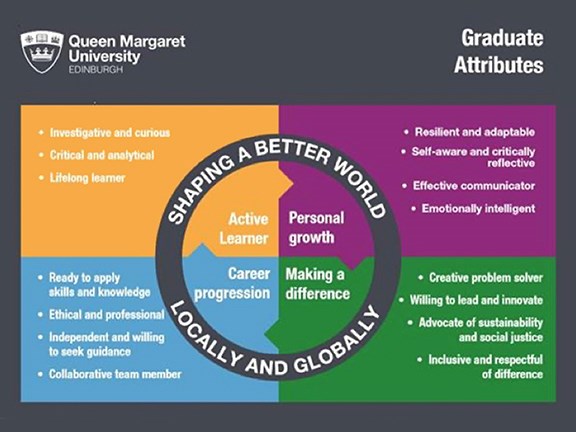Appendix 3 - Graduates Attributes
GRADUATE ATTRIBUTES - applicable to all QMU programmes (undergraduate and postgraduate) with effect from January 2022

Definitions
|
Active Learner |
|---|
|
Investigative and curious
|
|
Critical and analytical
|
|
Lifelong learner
|
|
Personal growth |
|---|
|
Resilient and adaptable
|
|
Self aware and critically reflective
|
|
Effective communicator
|
|
Emotionally intelligent
|
|
Career progression |
|---|
|
Ready to apply skills and knowledge
|
|
Ethical and professional
|
|
Independent and willing to seek guidance
|
|
Collaborative team member
|
|
Making a difference |
|---|
|
Creative problem solver
|
|
Willing to lead and innovate
|
|
Advocate of sustainability and social justice
|
|
Inclusive and respectful of difference
|
|
External context |
|---|
|
Shaping a better world – locally and globally
|



